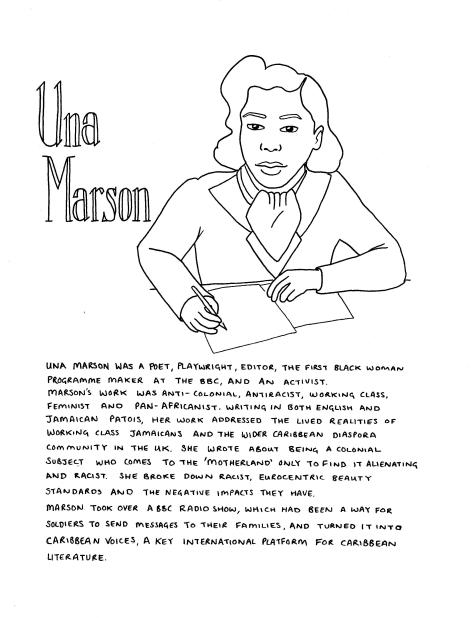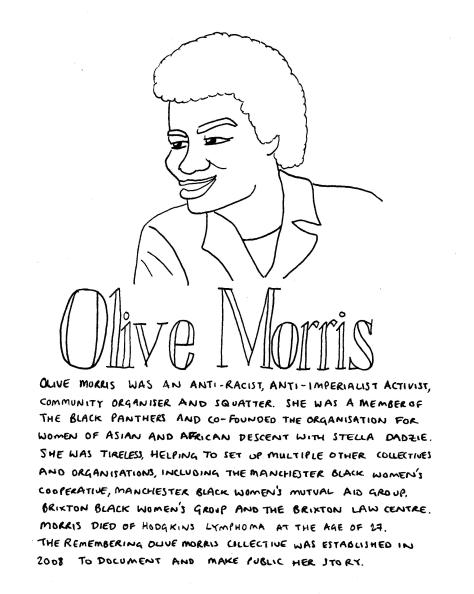 Olive Morris was an anti-racist, anti-imperialist activist, community organiser and squatter. She was a member of the Black Panthers and co-founded the Organisation for Women of Asian and African Descent with Stella Dadzie.
Olive Morris was an anti-racist, anti-imperialist activist, community organiser and squatter. She was a member of the Black Panthers and co-founded the Organisation for Women of Asian and African Descent with Stella Dadzie.
She was tireless, helping to set up multiple other collectives and organisations, including the Manchester Black Women’s Cooperative, Manchester Black Women’s Mutual Aid Group, Brixton Black Women’s Group and the Brixton Law Centre.
Morris died of Hodgkins Lymphoma at the age of 27.
The Remembering Olive Morris Collective was established in 2008 to document and make public her story.
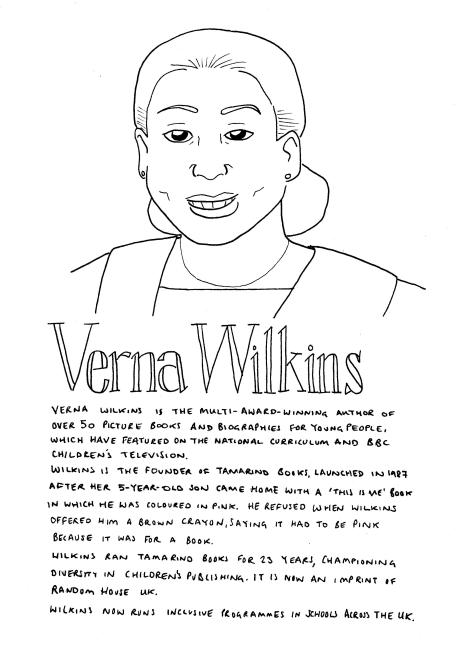
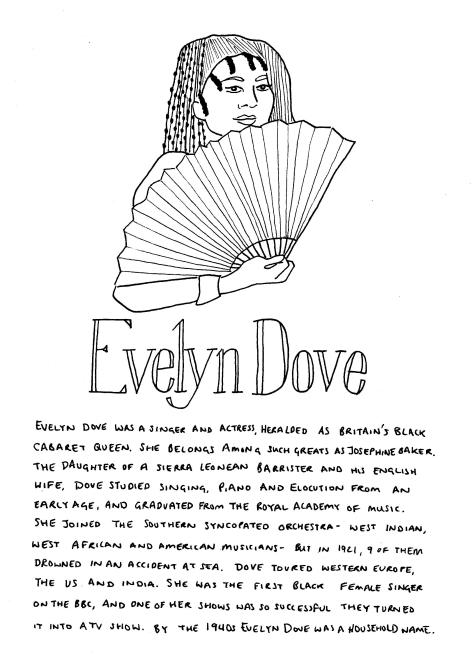
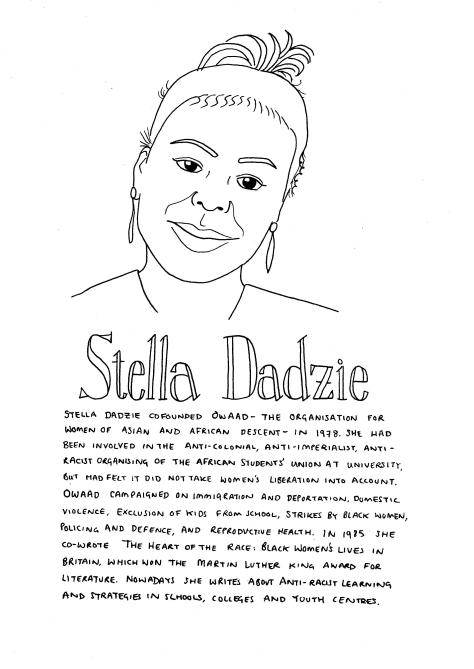
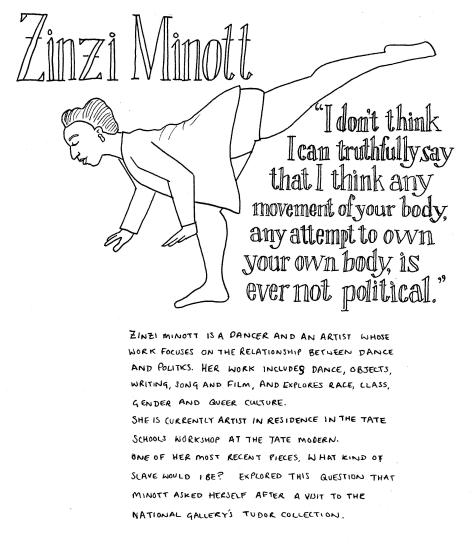
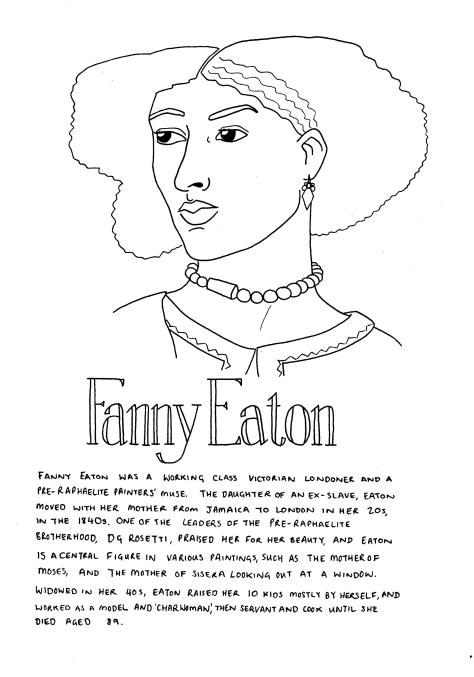
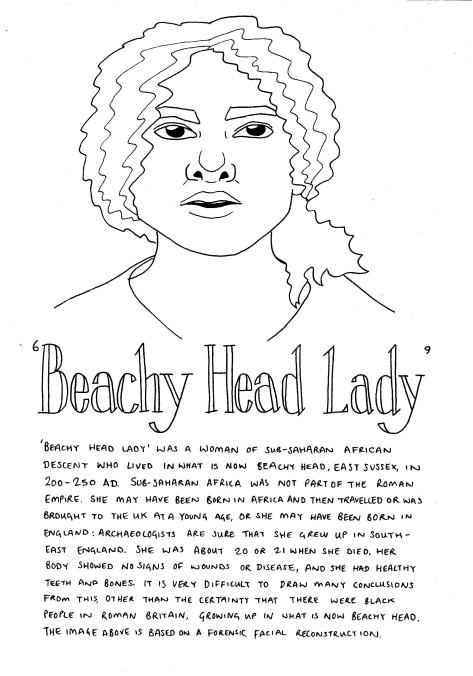
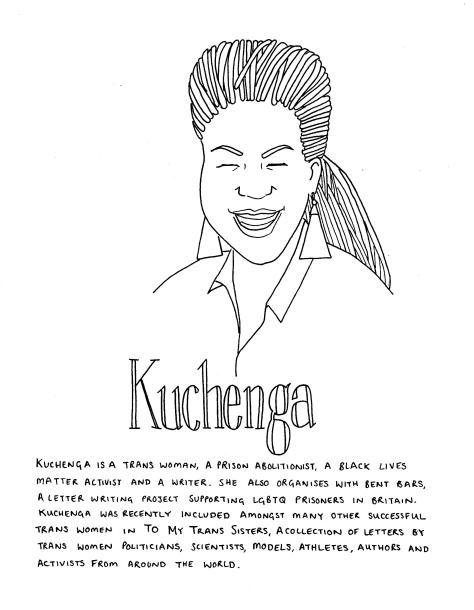
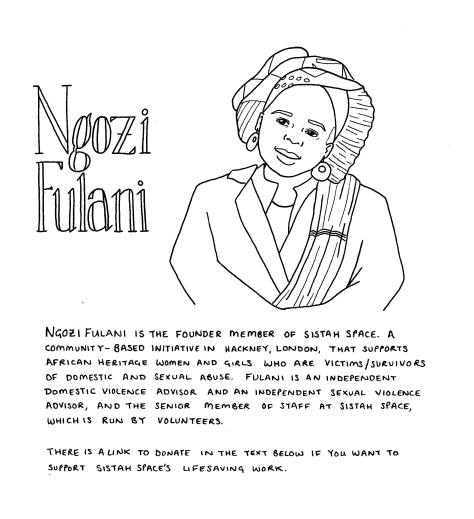 Ngozi Fulani is the founder member of
Ngozi Fulani is the founder member of 